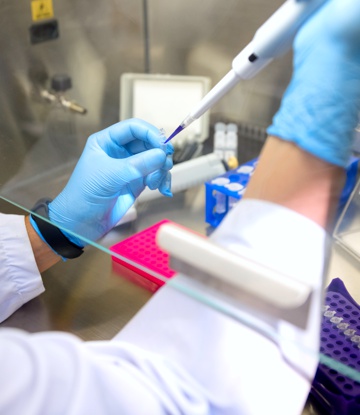
CBMEG BRINGS TOGETHER SCIENTISTS, GRADUATE STUDENTS, TRAINEES, MOLECULAR BIOLOGY TECHNICIANS, AND ADMINISTRATIVE ANALYSTS DEDICATED TO PRODUCING INNOVATIVE RESEARCH NOT ONLY TO ADVANCE SCIENCE, BUT ALSO TO BRING SOLUTIONS IN THE FIELDS OF HEALTH, AGRICULTURE, AND THE ENVIRONMENT.
The laboratories offer a scientific environment of high international standard, state-of-the-art instrumentation, specialized facilities and advanced services.
CBMEG scientists conduct groundbreaking research in a broad spectrum of disciplines, from medical genetics, plant genetics, animal genetics, environmental genetics and systems biology.
